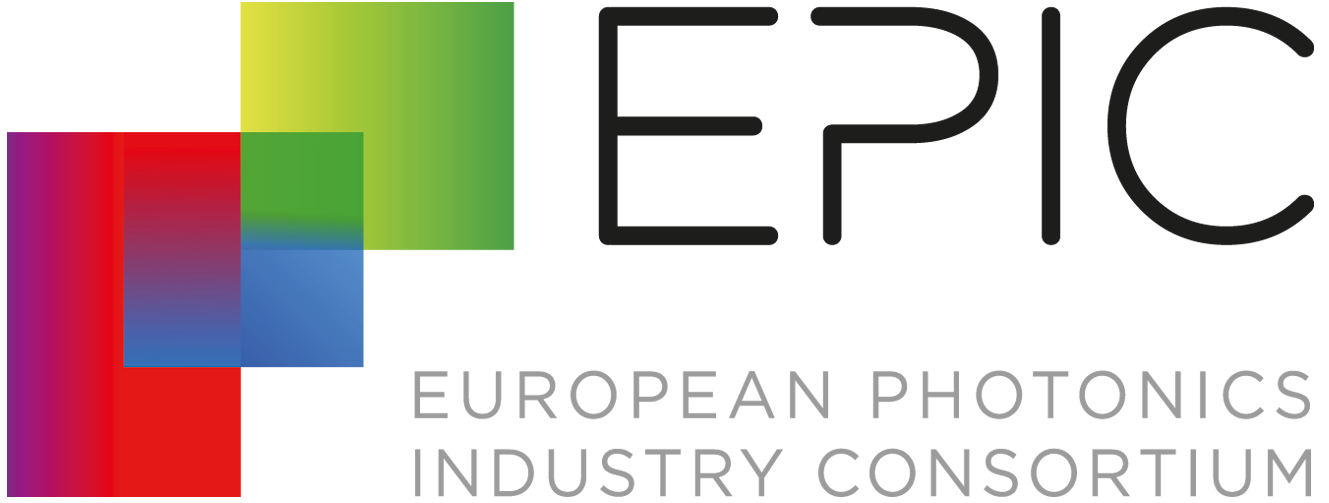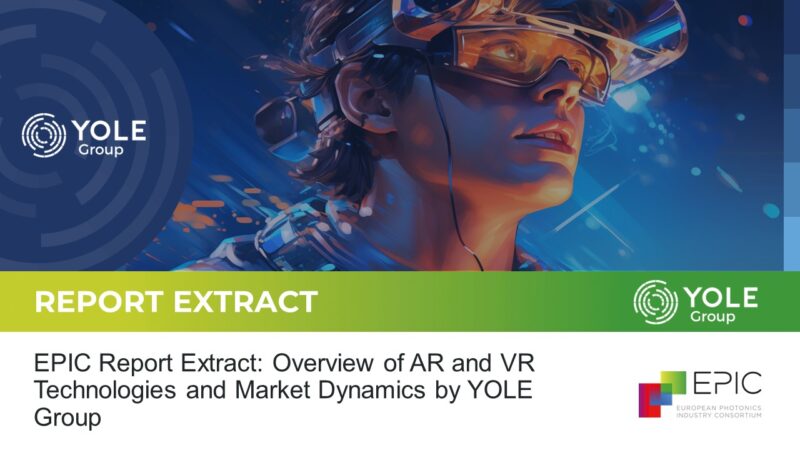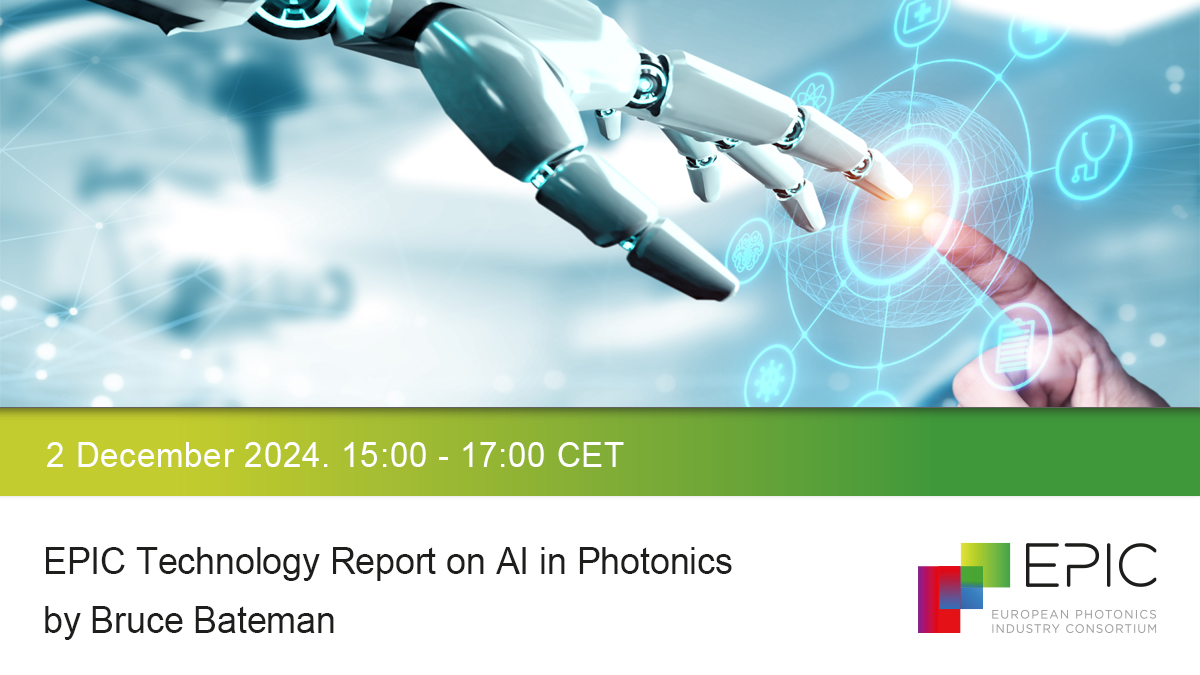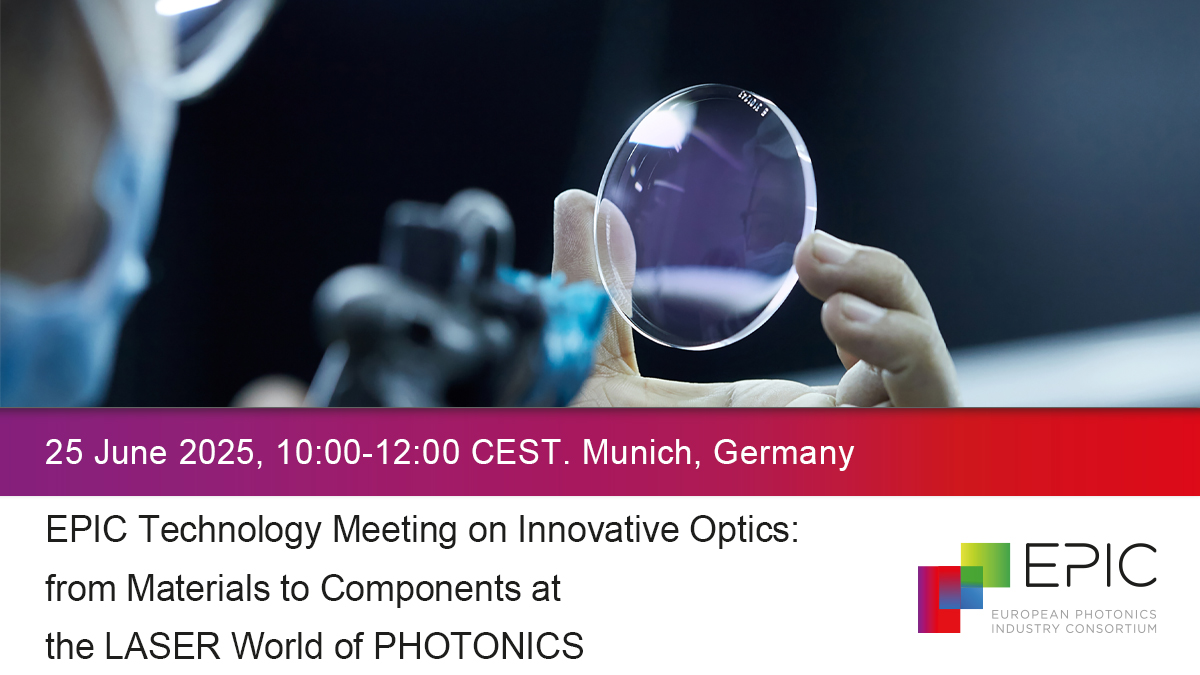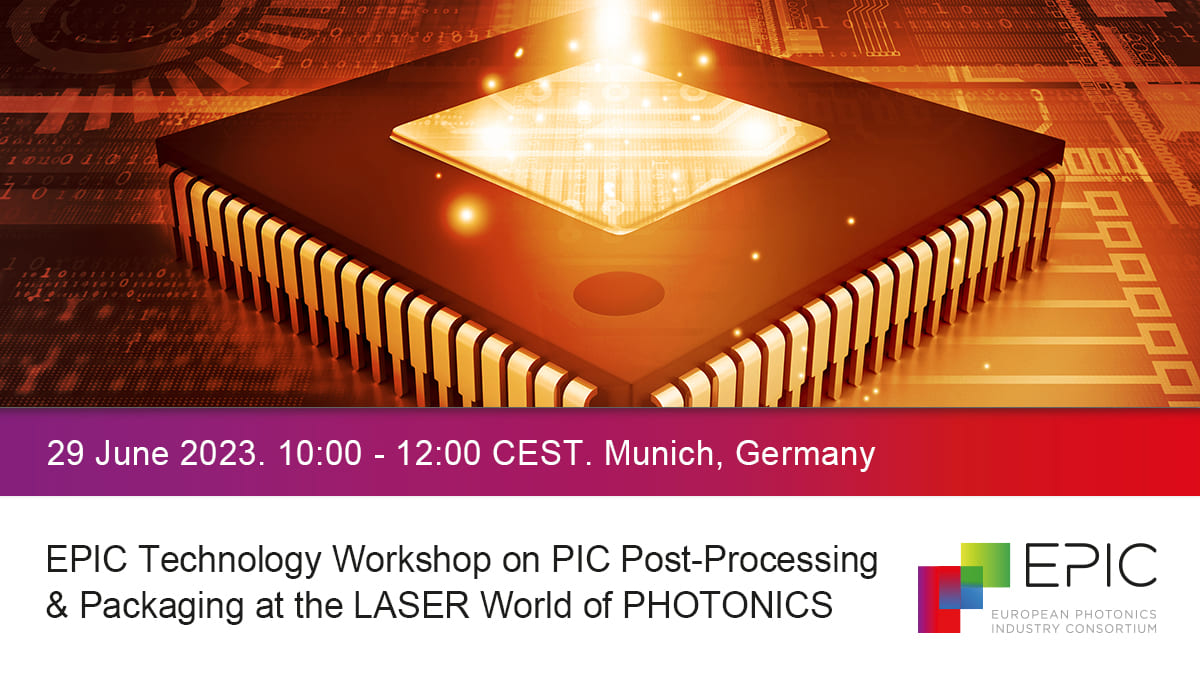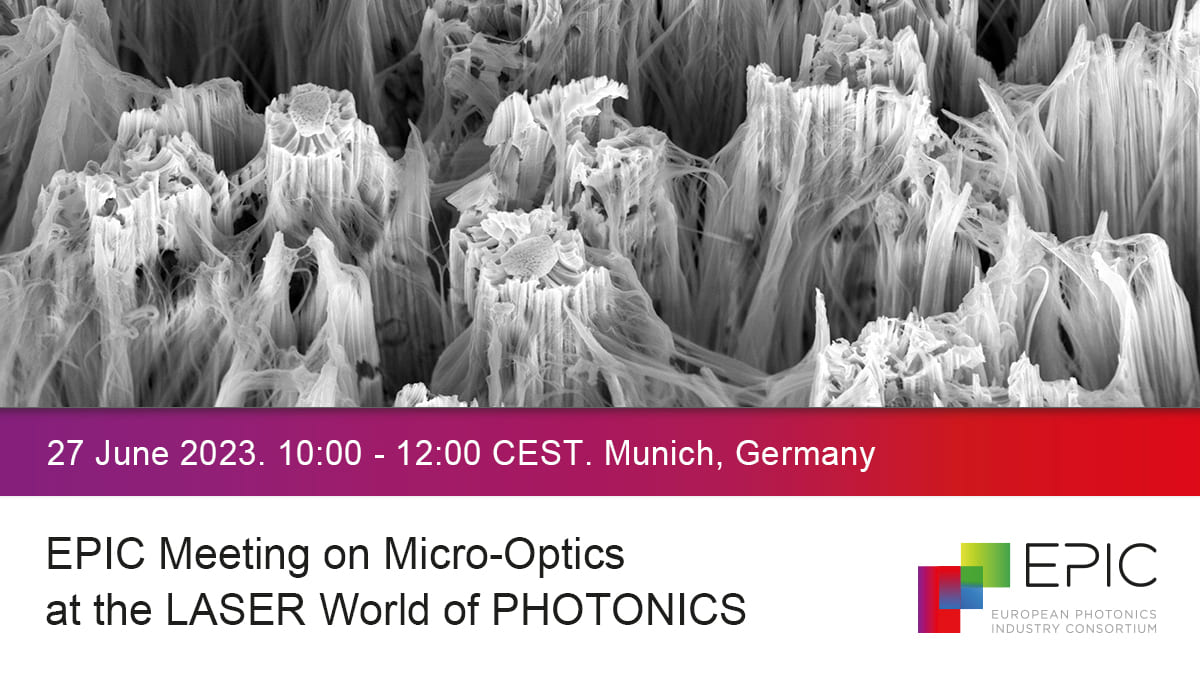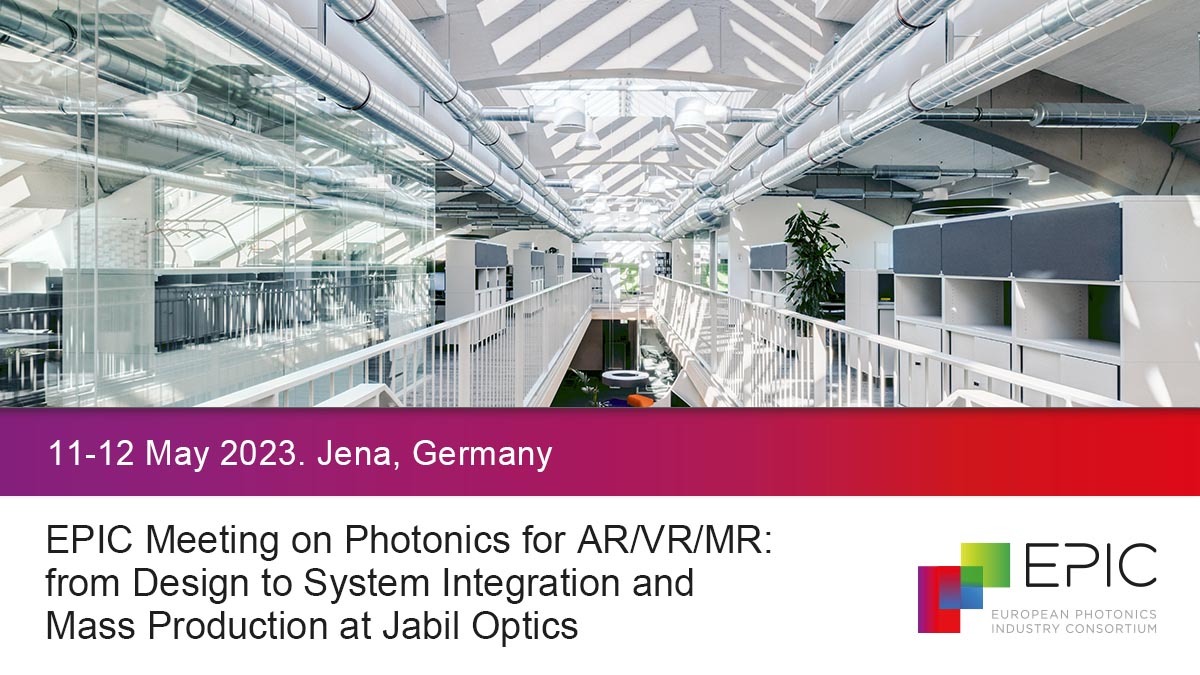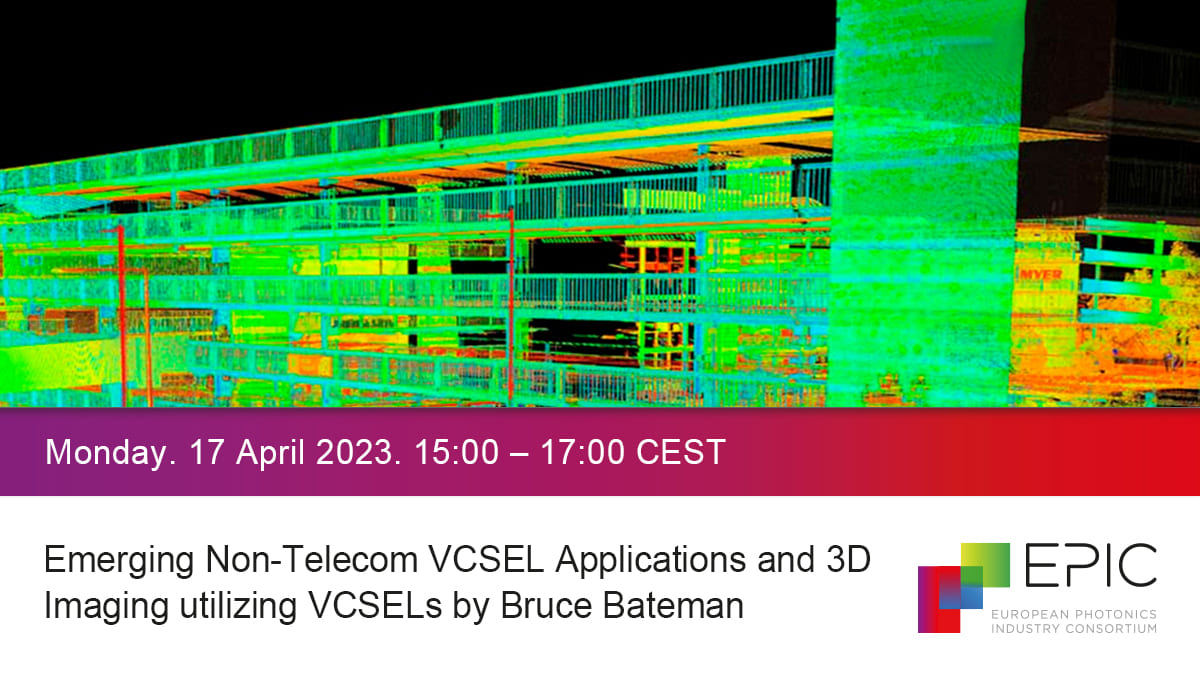Photonics for AR/VR: Design, Integration and Mass Production
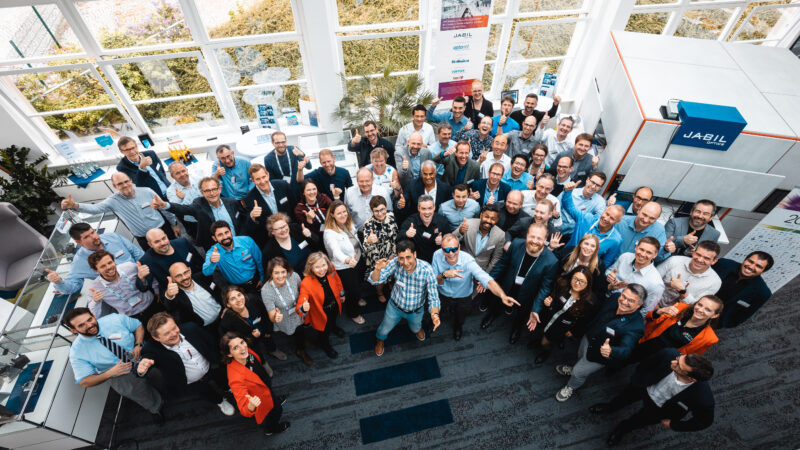
The meeting brought together key players in the AR/VR industry. The primary topic of discussion was the need for technology to be presented in a user-friendly form factor, necessitating even smaller optical components. However, the main challenge lies in balancing design requirements with user needs.
12 May 2023 – On May 2023 EPIC held a two-day meeting at Jabil Optics in Jena, Germany, and we are pleased to report that the meeting was well attended by the key players in the AR/VR industry. The discussions primarily focused on the fact that while technology has advanced significantly in recent years, it still needs to be presented in a user-friendly form factor, which means that optical components must become even smaller. However, the major challenge remains in understanding the design needs versus the user needs.
Collaborative nature of the AR/VR Industry
Simon Schwinger, Director of Business Development at Jabil Optics, emphasized the collaborative essence of the AR/VR industry in his welcome speech. Partnerships across optics, micro displays, and waveguides were highlighted to create innovative smart glasses solutions.
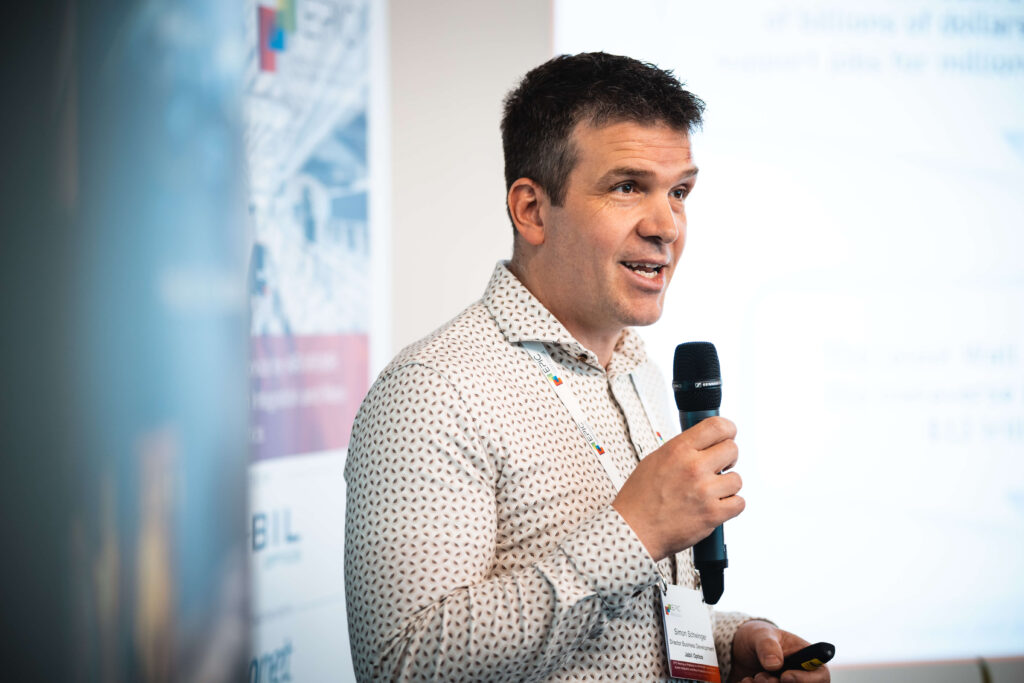
Challenges on integration and mass manufacturing:
Deepak Nair from NKT Photonics introduced SuperK Lasers for Test and Measurement.
Amin Abbasi from imec discussed Integrated Photonics’ role in the AR/VR market.
Jukka Perento from Inkron emphasized Process Optimization and Material Science.
Stephan Prinz from DELO showcased adhesives’ enabling role in AR/VR.
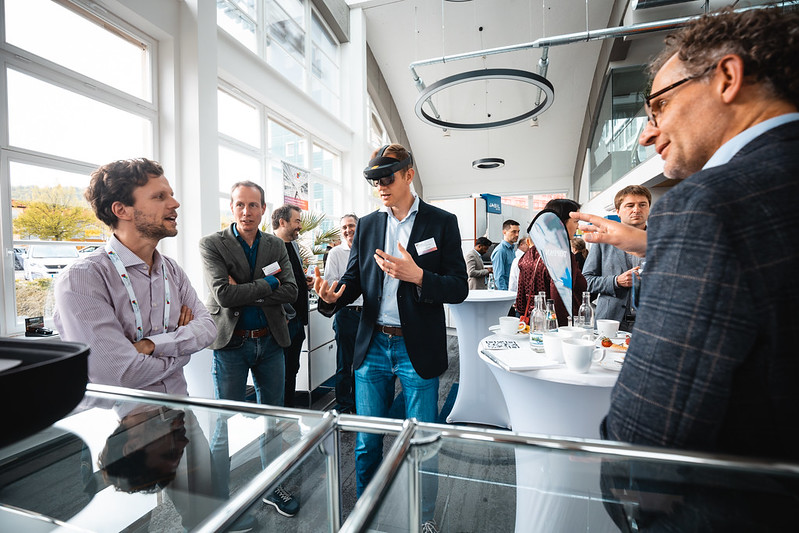
In the field of applications we highly recommend you to check the keynote presentation of Bharath Rajagopalan, from STMicroelectronics, where he explains the Architectural, Optical, Photonic and Systems Considerations for Laser Beam Scanning for Near-to-eye Display. During the meeting we had the chance to know notable solutions from Magic Leap, WaveOptics, a independent subsidiary of Snap, and Microoled, who offers the lightest eyewear available to date at only 36g. Other companies presenting XR solutions, where Dispelix, Lynx and Standford Mixed Reality & Nakamir.
Day 2: Design, Software, and Emerging Technologies
The second day commenced with Wyrowski from LightTrans delivering a keynote speech that honed in on the demands and solutions concerning Modeling and Design Techniques for AR/VR Glasses. Emilie Viasnoff of Synopsys posed a thought-provoking query to the audience: “AR/VR Craves Disruption in Optical Design: What Are the Solutions?” Notably, Susan Backhaus from Trilite Technologies, recent winner of an AWE Auggie Award, delved into The Role of Software in High Volume LBS Manufacturing for AR Glasses.
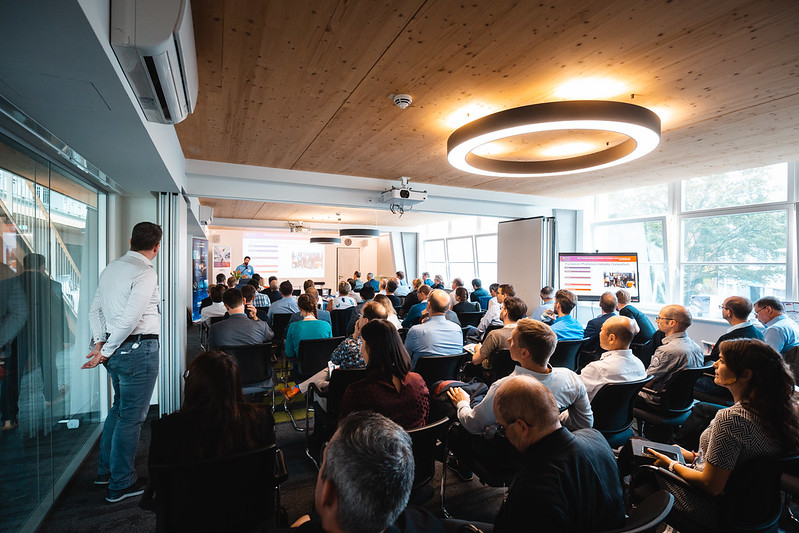
The subsequent session centered on emerging technologies within XR markets. Gerald Dahlmann from Coherent provided a keynote address, offering insights into the latest developments. Companies like Epson, actively engaged in the AR Glasses sector, shared their experiences. OQmented took the stage, showcasing their Laser Beam Scanning Based Light Engines for Displays and 3D Sensing in XR. Microdisplays were a highlight too, with Uwe Vogel from Fraunhofer FEP unveiling their remarkably compact XR solutions. Additionally, Theodor Nielsen of NIL Technology presented their Advanced Masters tailored for AR Waveguide Displays.
You can see the full agenda of the event and download the presentations here.
The history of Jena, the Optical Valley
During the meeting, we had the opportunity to explore some of the other companies located in Jena, renowned as the “Optical Valley.” The historical significance becomes evident, as the city owes much of its character to two influential scientists: Carl Zeiss, who established a microscope company in Jena back in 1846, and Otto Schott, credited as the pioneer of modern glass science. These two visionary enterprises serve as the foundation of the Optics Valley, further enriched by the bustling university life that lends Jena its youthful and vibrant ambiance.
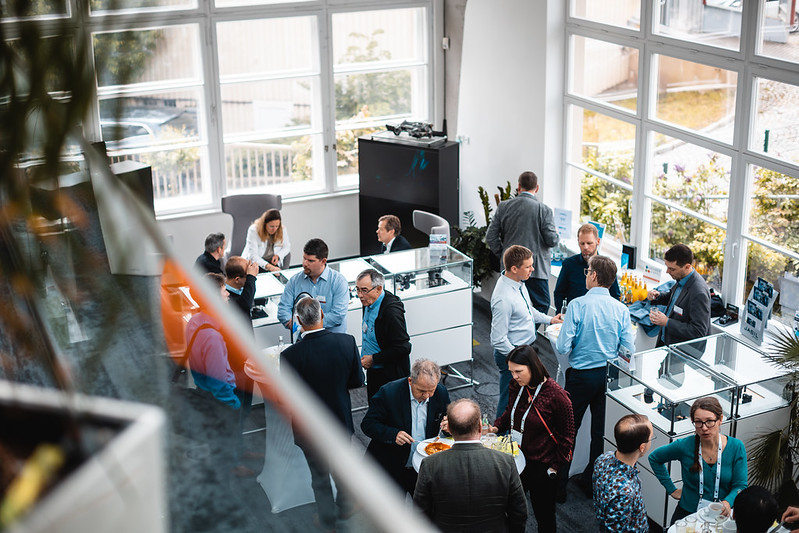
Now, where does Jabil Optics come into this narrative? In essence, Jabil’s involvement can be traced to its acquisition of a spinoff from the ZEISS Group. This pivotal connection forms the origin of today’s Jabil Optics team.
